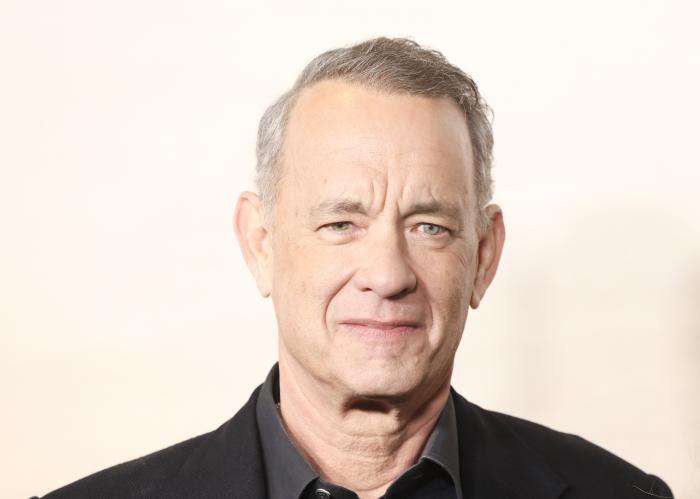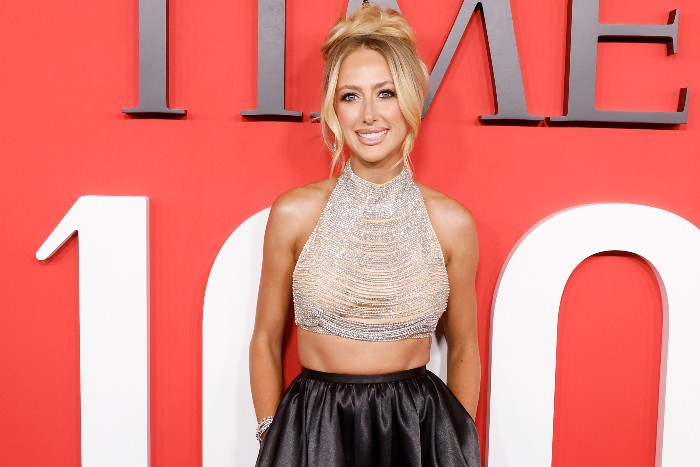

Public Cove: World's Greatest Half Blood Julia
By Genevieve Burgess | DVD Releases | December 8, 2009 |
By Genevieve Burgess | DVD Releases | December 8, 2009 |
Harry Potter and the Half Blood Prince: “The bulk of the film, as is the pattern, follows Harry through the school year, which is usually where the storylines tend to meander: He goes to classes, bumps his head against some mysteries, and tries to work things out. But Half-Blood Prince comes across stronger than the others films because of the momentum invested in the character relationships that’s finally paying off. Harry finds an old potions textbook inscribed as the property of the Half-Blood Prince that helps him do well in his lessons, but the film’s real focus is on the romantic ventures and failures of Harry, best friends Ron (Rupert Grint) and Hermione (Emma Watson), and Ron’s kid sister, Ginny (Bonnie Wright). The story coasts along on the charms of befuddled teens coming to grips with heavy emotions, and it also knows better than to allow them easy access to real happiness. Some of the most genuine moments come not from the larger plot involving Harry’s pursuit of evil but from the tangled paths Harry and his friends are trying to walk among each other.” — Daniel Carlson
Julie and Julia: “Julie and Julia floats along amiably, plasters a smile upon your face that doesn’t leave for 123 minutes, and then vanishes into the cinematic ether. Besides Streep’s captivating performance, the only thing that really sticks with you is the movie’s treatment of its husbands. It’s completely different from almost any other romantic comedy you’ve ever seen, focusing not on the dashing, handsome manly man who woos his lady with a big speech in the end, but on the contented happily ever after. We frequently complain about how women are depicted in romantic comedies, but men are too often idealized, and Julie and Julia provides a loving picture of two husbands who are supportive, grounding, encouraging, and content to remain supporting characters in these womens’ lives.” — Dustin Rowles
Public Enemies: “Public Enemies can best be understood as a mostly successful fusion of the two disparate sides of writer-director Michael Mann. He’s always functioned as a hybrid of pop and art, sliding back and forth between technical prowess and something less easily defined but that puts a greater emphasis on energy or charisma. This was never clearer than in the 1980s, when he was simultaneously executive producing “Miami Vice” and “Crime Story” for NBC. No one needs convincing of the cheeseball nature of the former, but the latter was just as important for allowing Mann to set the course for where he would go as far as crafting a gritty, complicated cops-and-robbers narrative. It’s the sizzle and the steak, the style and the substance, and Mann is able to skillfully bring them together for much of Public Enemies. The film isn’t perfect — the protagonist’s inability to look beyond his next 24 hours bleeds over into the film, letting it drift a bit too far afield — but it still finds moments of redemption in being a tightly drawn, solidly made, gorgeous rendering of a bygone time and the end of era.” — Daniel Carlson
The Cove: “Environmentalism typically drives me insane because it feels as if a group of well-to-do white people with nothing better to do than try to focus their efforts on improving the well-being of a fucking shrub or some goddamn fuzzy hamburger in training. I understand we’re strip mining the earth, injecting everything with harmful chemicals, and turning Mother Earth into Joan Rivers in heavy sunlight, but it’s always been hard for me to give a damn about spotted owls or the plight of a flower only found on the leeward face of a cliff in New Guinea. Especially when I’m slaving away at a menial job to put food on my table and keep myself of out of the hospital because I don’t have health care. I care about nature. But it’s never earned a high rank on the “give-a-shit-o-meter.” Yet all it took was one small thing: dolphins. Louis Psihoyos’s brilliant and startling documentary The Cove is like An Inconvenient Truth getting rescued by Rainbow Six. How’d you like a fucking carbon footprint upside your head? It manages to take a sledgehammer to all my cynical rambling arguments and demonstrates just what an atrocity the Japanese dolphin fishing is and why we need to stop it.” - Brian Prisco
World’s Greatest Dad: “And then one day, Lance comes home to find his son has accidentally strangled himself to death while masturbating. It’s a painful scene — weird and almost funny, but too heartbreaking to laugh at. Lance, who doesn’t want the school to know how his son died, zips him up, hangs him from the ceiling, frames it as a suicide, and composes Kyle’s suicide note, a note that is published a few weeks later in the school newspaper. The suicide note is a huge hit with the high school; suddenly, girls are bawling their eyes out; guys are offering each other sympathetic pats on the back, and teachers (who detested him as recently as the day before) are singing his motherfucking praises. The entire school adores the guy, and his suicide note somehow spoke to them all — it was their little Catcher in the Rye. Lance, so enamored with the attention and starved for an audience, then decides to write his son’s journal, which becomes an even bigger sensation. Kyle is suddenly the Martha Dumptruck of the high school, and Lance is perceived as the world’s greatest dad.” - Dustin Rowles
Intern Rusty is a Masters student at the University of Miami. You can learn more about her at Rusty’s Ventures.
More Like This
Peter Jackson May Be Less To Blame For 'The Hobbit' Than We Thought
Rifftrax Live: 'Sharknado' Is The Best Way To Watch 'Sharknado' While Sober
The 2 Best New Blu-Ray and DVD Releases of April 2014
The 7 Best New Releases You Can Buy In March 2014: I Don't Judge Your Method Of Delivery
The Best 6 DVD/Blu-ray And Streaming Releases of November 2013

Tom Hanks Is Not Trying To Sell You Drugs
Three Trailers: What Happened Before Rosemary's Baby, and Zoe Saldaña In Her Own Skin
Jack White Threatens 'Fascists' In Donald Trump's Campaign With A Lawsuit
Taylor Swift Has a Brittany Mahomes Problem
'The Acolyte's Amandla Stenberg Got Thrown to the Wolves
Christina Aguilera Thinks It’s ‘Corny’ When Celebrities ‘Do Things Intentionally’ to Stay Relevant
Pajiba Love

Taylor Swift Has a Brittany Mahomes Problem
Reviews